All Stories
-
 Archaeology
ArchaeologyFirst pants worn by horse riders 3,000 years ago
A new study indicates horse-riding Asians wove and wore wool trousers by around 3,000 years ago.
By Bruce Bower -
 Planetary Science
Planetary ScienceTitan’s haze gives clues to clouds on exoplanets
Titan’s hazy atmosphere may help astronomers better understand what’s going on in the clouds of exoplanets.
-
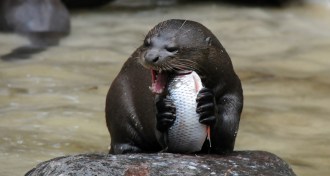 Animals
AnimalsOtters provide a lesson about the effects of dams
A dam created a new habitat, but that habitat’s lower quality kept otter density low.
-
 Cosmology
Cosmology2014 Kavli Prize winners announced
Cosmic inflation, nanoscale imaging and a better understanding of memory earn million-dollar honors with the Kavli Prize.
-
 Life
LifePolio could return after near eradication
Polio was considered eliminated in the United States by 1979, but since then vaccination rates have slipped, prompting concerns about reemergence.
-
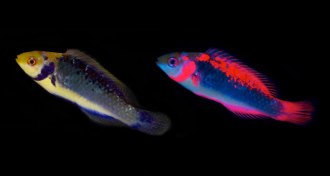 Animals
AnimalsReef fish get riled when intruders glow red
A male fairy wrasse gets feisty when he can see a rival’s colorful fluorescent patches.
By Susan Milius -
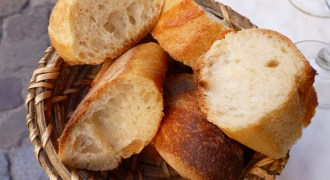 Health & Medicine
Health & MedicineSeparating wheat from chaff in gluten sensitivity
Some people who think they are sensitive to gluten might not be after all: Fermentable short chain carbohydrates, or FODMAPs, may be to blame in people with irritable bowel syndrome.
-
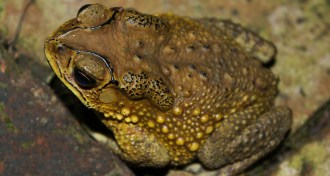 Animals
AnimalsToxic toad infiltrates Madagascar
Asian common toads may have hopped a ride to Madagascar and could pose an ecological risk to the island's native species.
-
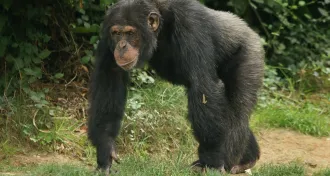 Life
LifeHuman use energy in brains, muscles differently than chimps do
The way our brains and muscles use energy is strikingly distinct compared with chimpanzees' metabolism in these tissues, a finding that may explain the major differences between the two species.
-
 Environment
EnvironmentCarbon dioxide levels hit landmark in Northern Hemisphere
The Northern Hemisphere experienced the first full month with the greenhouse gas at or above the symbolic 400 parts per million level.
By Beth Mole -
 Science & Society
Science & SocietyStem cell scientist reportedly agrees to retract controversial paper
Japanese stem cell scientist Haruko Obokata has agreed to retract one of the Jan. 30 Nature papers on STAP cells.
-
 Climate
ClimateViolent storms may shatter sea ice
Tall waves’ effect on sea ice hints at troubled water in the future.
By Beth Mole